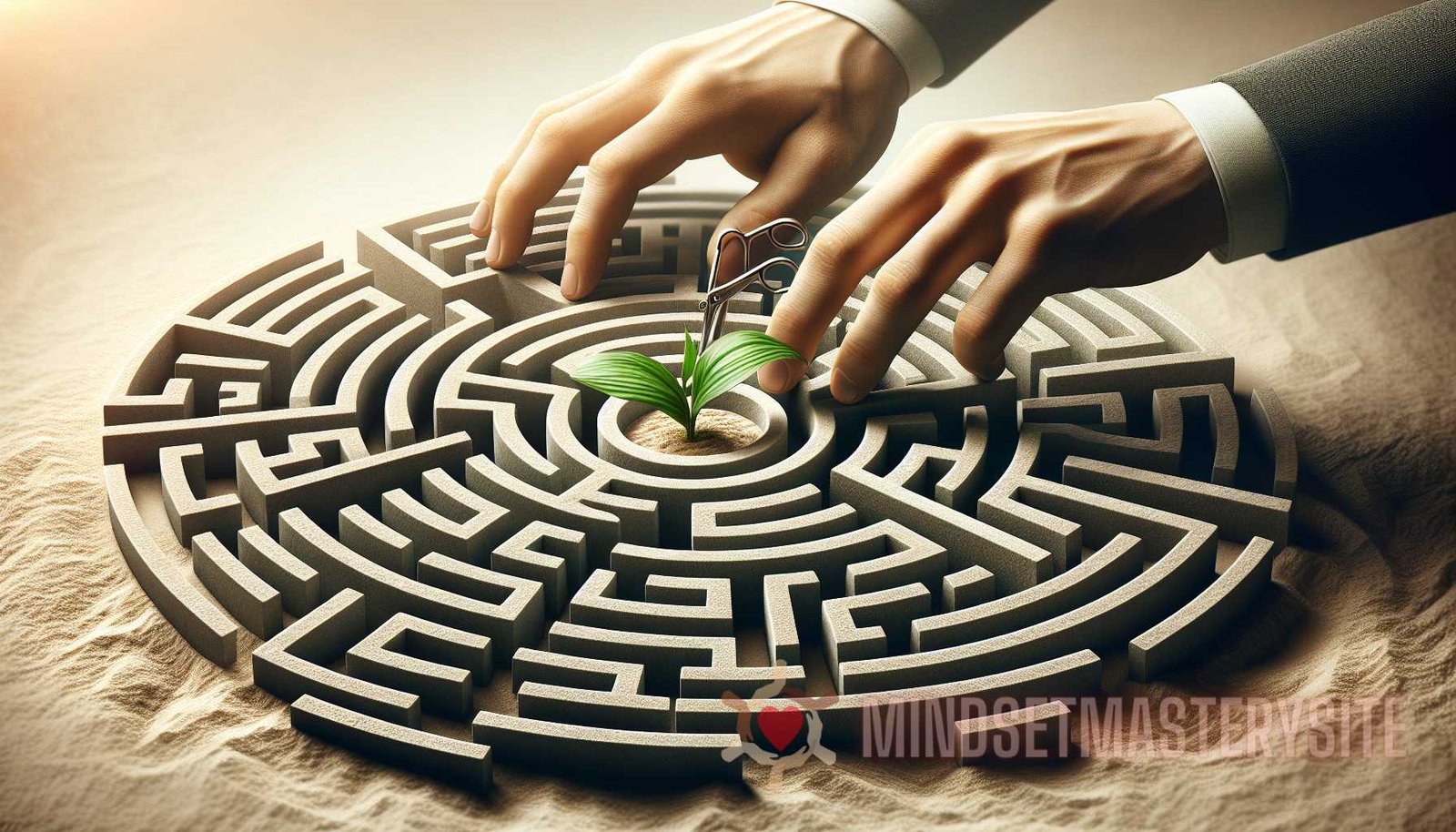Introduction
Unlocking the full potential of the human mind is a goal that has intrigued philosophers, scientists, and educators for centuries. The concept of a growth mindset, pioneered by psychologist Carol Dweck, offers a valuable perspective on how individuals can embrace the cognitive rewards of continuous learning and development. In this comprehensive guide, we will explore the principles and benefits of a growth mindset, providing practical strategies to cultivate this mindset and tap into our cognitive growth.
What is a Growth Mindset?
A growth mindset is a belief system that fosters the belief that our abilities, talents, and intelligence can be developed through dedication, effort, and perseverance. Individuals with a growth mindset understand that intelligence and skills are not fixed traits, but instead, can be cultivated and expanded over time.
Adopting a growth mindset empowers individuals to approach challenges with resilience, view failures as opportunities for growth, and embrace hard work as a path to mastery. Instead of being discouraged by setbacks, those with a growth mindset see them as stepping stones to progress and are motivated by the process of learning itself.
The Science Behind the Growth Mindset
The idea of the growth mindset is rooted in neuroscience and psychology research. Studies have shown that our brain is more malleable and adaptable than previously believed. This neuroplasticity means that our brains can form new neurons and make new connections throughout our lives, enabling us to learn and grow.
Research conducted by Carol Dweck and her colleagues demonstrated that mindset can significantly impact a person’s motivation, effort, and performance. In one study, students who were taught about the growth mindset showed a greater willingness to embrace challenges, put in effort, and persist in the face of difficulties compared to those who were not exposed to the concept.
Internal Link: If you want to learn more about the power of the growth mindset, check out our Ultimate Guide to Expanding Your Horizons: Embrace the Endless Sky with a Growth Mindset.
The Benefits of a Growth Mindset
Embracing a growth mindset can have numerous positive effects on both personal and professional development. Here are some of the key benefits:
1. Increased Resilience
Individuals with a growth mindset are more resilient when facing setbacks and challenges. They see failures as temporary setbacks and opportunities for learning, rather than permanent reflection of their abilities. This resilience enables them to bounce back quickly, adapt to change, and persist in the face of adversity.
2. Enhanced Learning and Performance
A growth mindset fosters a love for learning and the belief that effort leads to improvement. As a result, individuals with a growth mindset are more motivated to acquire new knowledge and skills. They are more likely to engage in deliberate practice, seek feedback, and continuously strive for improvement, leading to enhanced learning and higher performance levels.
3. Increased Creativity and Innovation
Possessing a growth mindset encourages individuals to think outside the box, take risks, and embrace new ideas. They are not constrained by a fear of failure or a fixed mindset that limits their creative thinking. This openness to new possibilities promotes innovation and allows individuals to approach problems from fresh perspectives.

4. Improved Relationships
A growth mindset fosters collaboration, empathy, and constructive communication. When individuals believe that people can grow and change, they are more likely to support and encourage others’ efforts. This positive mindset leads to healthier relationships, both personally and professionally, as individuals view conflicts as opportunities for growth and work together to find mutually beneficial solutions.
5. Greater Mental Well-being
Developing a growth mindset can also have a positive impact on mental health. By focusing on personal growth and progress rather than fixed outcomes, individuals experience less stress, anxiety, and self-doubt. They are more likely to embrace challenges as opportunities for growth and maintain a positive attitude in the face of adversity, leading to greater overall well-being.
How to Cultivate a Growth Mindset
While some individuals may naturally possess a growth mindset, for many people, it is a skill that can be developed with deliberate practice. Here are some strategies and techniques to cultivate a growth mindset:
1. Embrace Challenges
Instead of avoiding challenges, seek out opportunities that stretch your abilities and push you out of your comfort zone. Embracing challenges helps build resilience, fosters a love for learning, and provides opportunities for growth.
2. View Failure as a Learning Opportunity
Shift your perspective on failure to view it as a stepping stone to success. Recognize that setbacks and mistakes are an inevitable part of the learning process and an opportunity to gather valuable feedback and learn from them.
Internal Link: Learn how to transform failures into opportunities by reading our guide on The Power of Yet: Transforming Failure into Opportunities.
3. Cultivate a Passion for Learning
Adopt a mindset that values the process of learning over immediate outcomes. Embrace a love for acquiring new knowledge and skills, and seek out opportunities for continuous learning and personal growth.
4. Emphasize Effort and Hard Work
Recognize and celebrate the effort and hard work you put into your endeavors, rather than focusing solely on the end result. By valuing the process of learning and growth, you will be more motivated to persist and put in the necessary effort.
5. Embrace Feedback and Learn from Criticism
View feedback and criticism as valuable sources of insight and opportunities for growth. Be open to receiving input from others, reflect on their perspectives, and use it to improve your skills and abilities.

6. Cultivate a Positive Mindset
Adopt a positive attitude towards challenges and setbacks. Reframe negative thoughts into positive ones and focus on the progress and growth you have made, no matter how small.
Fostering a Growth Mindset in Education
One of the domains where the growth mindset has been successfully applied is education. Educators play a critical role in creating an environment that nurtures and fosters a growth mindset among students. Here are some strategies that can be used in educational settings:
1. Teach the Growth Mindset
Introduce the concept of the growth mindset explicitly to students. Engage them in discussions and activities that help them understand the idea of growth, challenge their fixed mindset beliefs, and learn how to cultivate a growth mindset.
2. Encourage Effort and Persistence
Praise and reward students for their effort and hard work, rather than their innate abilities or grades. Teach them that the process of learning is more important than achieving immediate success, and that setbacks are opportunities for growth.
3. Provide Opportunities for Reflection
Engage students in periods of reflection where they can assess their learning progress, set goals for improvement, and identify strategies to overcome challenges. Encourage self-reflection as a way to develop self-awareness and a growth mindset.
4. Create a Safe and Supportive Learning Environment
Create a classroom culture where mistakes are seen as learning opportunities and students feel comfortable taking risks. Foster an environment where students support and encourage each other and collaboration is valued over competition.
5. Flexibility in Assignments and Assessments
Offer students choices and flexibility in their assignments and assessments. Provide opportunities for creativity and critical thinking, allowing students to explore their interests and approach tasks from different perspectives.
Conclusion
Cultivating a growth mindset is a powerful mindset that can unlock our cognitive growth potential. By believing in the power of continuous learning, effort, and resilience, we can overcome challenges, embrace failures as opportunities, and reach higher levels of achievement. Whether in personal or professional endeavors, adopting a growth mindset opens up a world of possibilities for self-improvement and success.
By embracing the principles of a growth mindset and implementing the strategies outlined in this guide, individuals can unleash their potential and tap into the cognitive rewards that come with lifelong learning and development.



